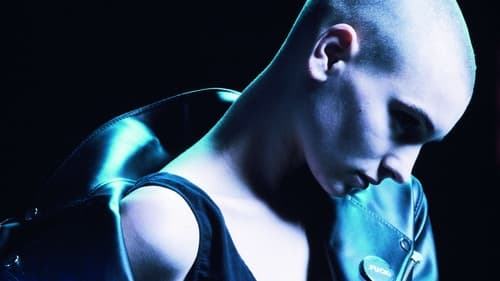
Writer
Stolen is an insight into the Mother and Baby Homes scandal that ricocheted around the world and sparked a government inquiry into the fate of unmarried women who fell pregnant in 20th century Ireland. The discovery that 796 babies had died without burial records in the Tuam Mother and Baby Home alone was followed by evidence of their interment in a sewage works below a playground. A vista of horror opened up for what happened at other institutions run by religious orders, such as Bessborough in Cork and Sean Ross Abbey in Tipperary. Survivors, including mothers and witnesses, speak out.

Director
Stolen is an insight into the Mother and Baby Homes scandal that ricocheted around the world and sparked a government inquiry into the fate of unmarried women who fell pregnant in 20th century Ireland. The discovery that 796 babies had died without burial records in the Tuam Mother and Baby Home alone was followed by evidence of their interment in a sewage works below a playground. A vista of horror opened up for what happened at other institutions run by religious orders, such as Bessborough in Cork and Sean Ross Abbey in Tipperary. Survivors, including mothers and witnesses, speak out.

Self
Since the beginning of her career, Sinéad O’Connor has used her powerful voice to challenge the narratives she was surrounded by while growing up in predominantly Roman Catholic Ireland. Despite her agency, depth and perspective, O’Connor’s unflinching refusal to conform means that she has often been patronized and unfairly dismissed as an attention-seeking pop star.

Producer
Film-maker Alison Millar spent a year behind the scenes with the ladies of the Loyal Orange Lodges of Ireland. Given unprecedented access, her film reveals for the first time the private rituals and ceremonies of this secretive organisation.

Writer
On January 30, 1972 in Derry, Northern Ireland, the British army fired on a peaceful civil rights demonstration killing thirteen people. During the ensuing trial, Widgery, the prosecutor at the High Court of Justice, exonerated the soldiers involved from all responsibility and dragged the dead and wounded through the mud, calling them, in particular, dangerous bombers. In 1998, a new trial opened to shed light on this event now known as the "Bloody Sunday". This documentary follows this trial over five years from the point of view of the families of the victims, in perpetual displacement between Derry and London. The director herself witnessed the events of the time and was heard by this tribunal which is expected to rule in 2007.

Director
On January 30, 1972 in Derry, Northern Ireland, the British army fired on a peaceful civil rights demonstration killing thirteen people. During the ensuing trial, Widgery, the prosecutor at the High Court of Justice, exonerated the soldiers involved from all responsibility and dragged the dead and wounded through the mud, calling them, in particular, dangerous bombers. In 1998, a new trial opened to shed light on this event now known as the "Bloody Sunday". This documentary follows this trial over five years from the point of view of the families of the victims, in perpetual displacement between Derry and London. The director herself witnessed the events of the time and was heard by this tribunal which is expected to rule in 2007.

Writer
In 1984, a pregnant Irish girl tries to contact her boyfriend in British prison but her letters are not allowed through to him because she writes in Irish.

Director
In 1984, a pregnant Irish girl tries to contact her boyfriend in British prison but her letters are not allowed through to him because she writes in Irish.

Producer
This film explores the development and use of images and music which personify Ireland as a woman in Irish culture and nationalism. The film highlights how these cultural and stereotypical images of Ireland as a woman influence the idealised model of woman demanded by Irish society. It uses historical film, photographs, political drawings, cartoons and music to explore the largely unrecorded role of women in Irish history and presents realistic images of Irish women at work today.








